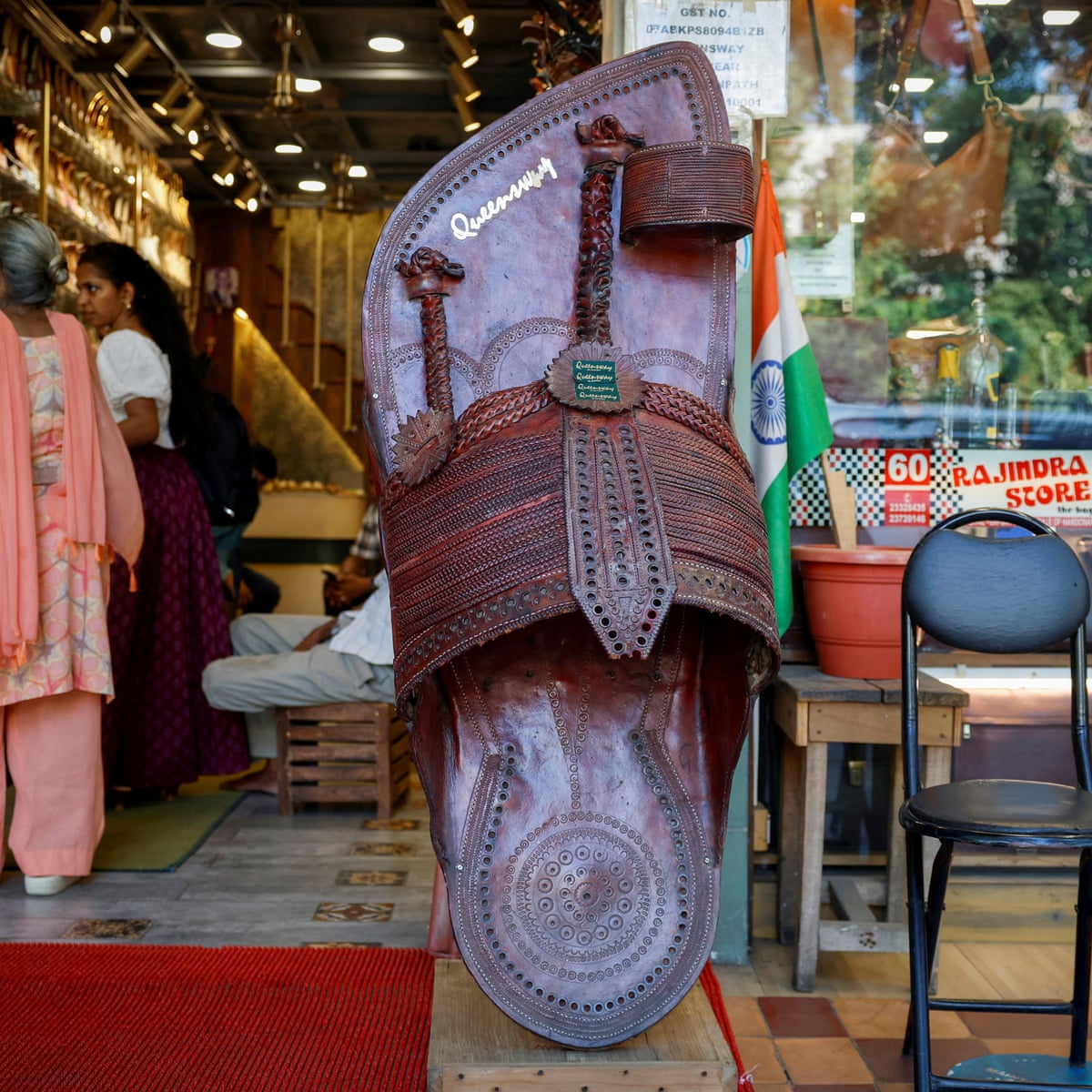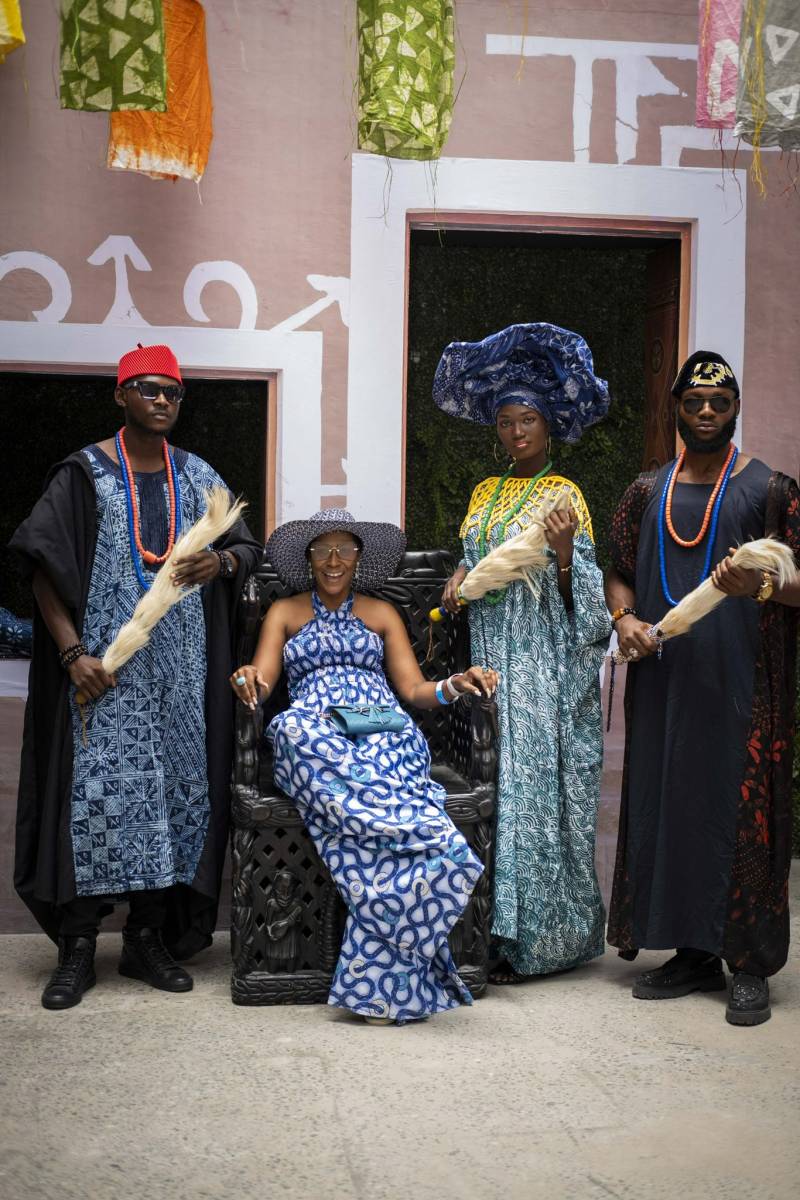In a striking turn of events that has rippled across the fashion and cultural landscapes, luxury fashion house Prada has officially acknowledged the Indian origins of a footwear design featured in its Spring/Summer collection, following widespread criticism and cultural backlash. The controversy ignited after social media users and fashion critics noticed stark similarities between Prada’s showcased sandals and traditional Indian footwear known as Kolhapuri chappals, a centuries-old handcrafted leather sandal style native to Maharashtra, India.
Kolhapuri chappals have long symbolized Indian craftsmanship, rooted in heritage and tradition. These sandals are not just fashion items but cultural artifacts worn by generations. The backlash began when Indian fashion enthusiasts and cultural commentators accused Prada of cultural appropriation—leveraging a traditional design without giving due credit to its origin or the artisans behind it.

Read Also: Ami Paris Spring Summer 2026

The initial fallout on platforms like Instagram, X (formerly Twitter), and TikTok prompted a global conversation about cultural representation in fashion. Critics argued that Prada’s failure to acknowledge the Indian roots of the design undermined the centuries-old craftsmanship of Indian artisans, many of whom still produce these sandals by hand in rural workshops. In response to the growing online criticism, Prada released a statement clarifying its position and crediting the influence of traditional Indian footwear on the design. The brand admitted that the sandals drew inspiration from Indian aesthetics and praised the centuries of innovation behind the original Kolhapuri style. “We recognize and appreciate the cultural significance and artisanal heritage of this design, and we are committed to honoring its roots,” Prada noted in its updated product description and official release. This incident sheds light on the ongoing issue of cultural appropriation versus appreciation within the global fashion industry. While fashion is inherently inspired by a myriad of cultures, the thin line between homage and exploitation becomes even more sensitive when large, profit-driven brands repurpose traditional designs without empowering or even acknowledging the communities that originated them.
India’s footwear traditions, particularly Kolhapuri chappals, are known for their intricate detailing, sustainable materials, and unique manufacturing techniques passed down through generations. These sandals are often made from locally-sourced leather and crafted using eco-friendly processes—qualities that align well with the growing demand for sustainable fashion. Yet, artisans behind such creations are rarely spotlighted or financially compensated when global luxury brands incorporate their designs into high-priced collections. Following Prada’s public acknowledgment, several Indian designers and cultural historians have called for deeper collaborations between global fashion houses and indigenous artisans. “Acknowledgment is a start, but inclusion, equity, and representation must follow,” said Anita Kumar, a fashion anthropologist based in Delhi. Others have suggested that this moment could catalyze the creation of more ethical design pipelines that credit and uplift traditional artisans rather than merely borrowing their aesthetic.
For Indian consumers and diaspora communities worldwide, the recognition felt like a small victory in a long-standing battle for cultural respect in fashion. “It’s about time our designs were seen and appreciated globally, not just used without context,” commented one user on TikTok. Videos comparing Prada’s version with original Kolhapuri chappals have gone viral, sparking renewed interest in the handmade Indian sandal and even driving traffic to local sellers and artisan cooperatives online. As the fashion industry faces increasing scrutiny around ethical sourcing, sustainability, and diversity, incidents like this underline the importance of authenticity and credit in design. Prada’s course correction—though reactive—may signal a growing willingness among luxury brands to listen, learn, and evolve. Ultimately, this episode serves as a timely reminder that in fashion, acknowledging your sources is not only a sign of respect but a necessary step toward more inclusive and ethical creative practices. And for Indian artisans, it may just be the beginning of long-overdue global recognition.



